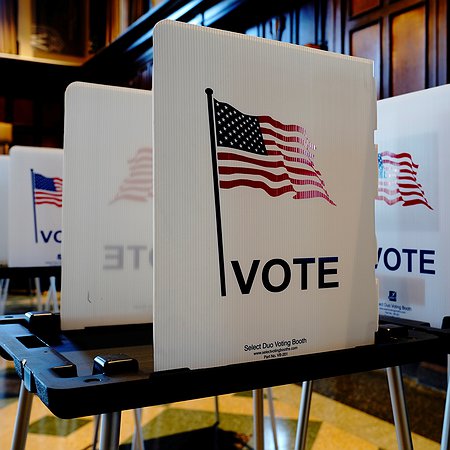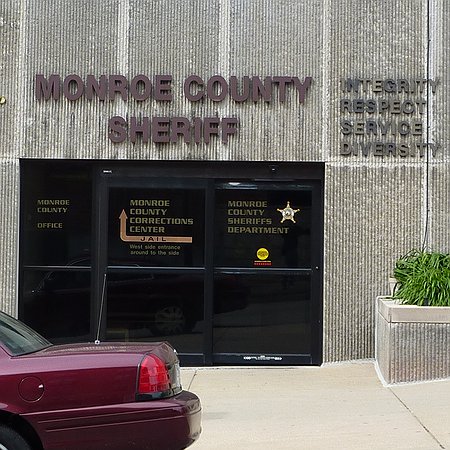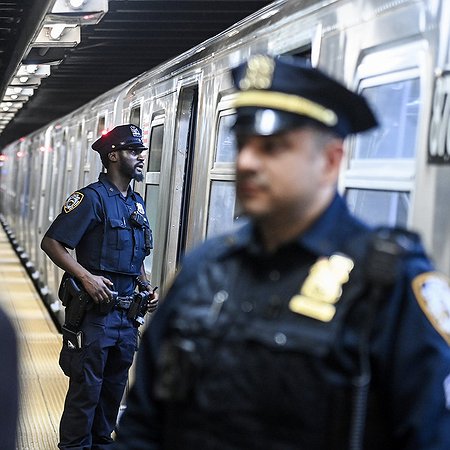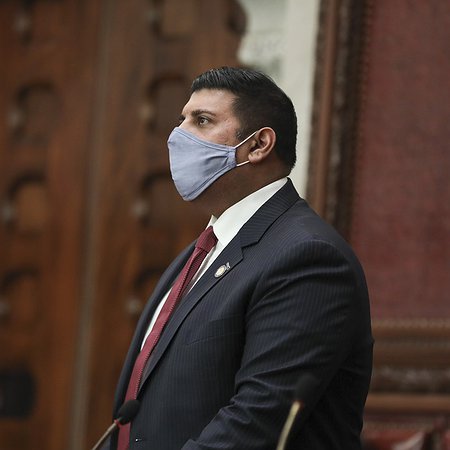Proposed Discovery Changes Would Undo Critical Reforms
New York district attorneys are reportedly pushing for massive changes to New York’s discovery reforms passed in 2019 that brought the state in line with the rest of the country.
The Briefing
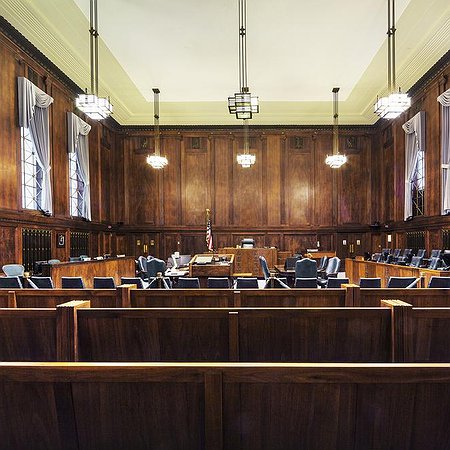
New York district attorneys are reportedly pushing for massive changes to New York’s discovery reforms passed in 2019 that brought the state in line with the rest of the country. The 2019 reforms were guided by two simple principles: 1) a person accused of a crime should know the evidence against them and 2) law enforcement is in the best position to know what information is in the possession of law enforcement. The proposed changes to the law – falsely styled as a technical tweak – would entirely undo the reforms in practice by creating case delays, shifting the compliance burden from the prosecution to the defense, and encouraging DAs to withhold discovery.
The proposal flips the burden of discovery onto the accused
The reported proposal does not change whether a person accused of a crime is entitled to the evidence against them; what the proposal does is change which side has the burden to determine whether information is missing. The 2019 law stated that the prosecution must turn over all information related to the case within a specified timeframe; if the prosecution failed to turn over all information, then the judge could penalize the prosecution, including finding that they had violated a defendant’s speedy trial rights. Last year, the legislature rolled back the reforms (following on fearmongering from law enforcement) and required any challenge by the defense to be in writing.
The reported proposal would go one step further by flipping the burden of discovery onto the person accused of a crime: if the defense does not raise challenges in writing within 35 days, the defense would waive any challenge to discovery. In other words, the defense would be forced to determine – and challenge in writing – whether law enforcement has provided the defense with all required information within 35 days.
Such a burden is abjectly absurd. The defense does not have access to the police files like the prosecution does and cannot read minds. This informational imbalance will likely cause defense attorneys to file stock motions in every case to make sure their clients’ rights are not being waived and disfavor poor New Yorkers who cannot afford attorneys with fewer cases and larger support staff.
The change would gut the efficacy of the reform law
Prior to 2019, the prosecution could say they were ready to proceed to trial even though they had not disclosed required information to the defense. They often did. This loophole set up an impossible choice for a person accused of a crime: wait (oftentimes while in dangerous jail conditions) until you have all of the necessary information for your day in court, or call the bluff of the prosecution and go into trial unprepared.
The 2019 reforms fixed this loophole: the prosecution could not say they were ready for trial until they had turned over the necessary discovery. Such a change was simple and followed common sense. Yet because the law flew in the face of the culture of prosecutorial inaction, District Attorneys across the State derided the reform and falsely accused the law of causing cases to be dismissed.
The law is working as intended: because a prosecutor cannot “state ready” for trial until discovery has been completed, prosecutors are more diligent about turning over discovery. It is no surprise, therefore, that prosecutors want to roll back this provision. The proposal makes a technical change that, working with other procedural rules and practical realities of the court system, would gut the efficacy of the entire law.
The reported proposal would require the defense to file a written motion within 35 days of receiving a “Certificate of Compliance,” a document prosecutors file to claim they have turned over all required discovery. The filing of that certificate stops “the clock” of speedy trial time allowed. That clock does not start running until the case is set for trial, so the resolution of that defense motion also causes a trial to be delayed without the prosecution being held accountable, creating harsh consequences for incarcerated New Yorkers facing long periods of pre-trial detention.
Here is what could be a typical example of how this proposal will cause significant delays without any accountability for the prosecution.
A certificate of compliance is filed on January 1. The defense files its motion challenging the certificate on February 1, arguing that two pieces of discovery have not been turned over: 1) grand jury testimony of an eyewitness; 2) body-worn camera footage of one of the two offices at the scene, and that officer is the officer who stopped the person arrested. The next court date is not until February 10, and, on that date, the prosecution says it needs a month to respond to the motion because they are understaffed and overworked. The judge sets the next court date of April 1 for a decision on the motion.
On April 1, the Judge has not issued a decision yet because they are backlogged; it turns out a motion has been filed on every single case in their docket because the new law says that if a challenge is not made, then the challenge is waived. The case is put on for a month for a decision to be issued again.
On May 1, the Judge rules in favor of the defense, and decides that the Certificate of Compliance was not valid because the grand jury testimony and the officer’s body-worn camera footage should have been turned over. The case is adjourned for six weeks for the prosecution to file a “supplemental Certificate of Compliance”. The Prosecution had already gotten the footage, which is sent over the next day and the prosecution files the supplemental Certificate.
On June 15, the Defense agrees the Prosecution has turned over everything, but asks for speedy trial time to be charged to the prosecution because it filed a Certificate of Compliance when they clearly had not turned over all information. The Judge empathizes but says that the law is clear and all of the previous time is not counted against the Prosecution; the judge sets the next court date for August 1 for trial. Seven months will have passed since the improper Certificate took away prosecutorial accountability.
If the proposals become law, the combination of a written objection requirement for the defense, a strong incentive for defense attorneys to file written discovery objections in each case to cover their bases, and court congestion will cause significant delays in each case and will take away all incentives for the prosecution to follow the law.
Hochul and the District Attorneys Association are hoping that the legislature, media, and public will not pay attention to what seems to be a minor, technical “tweak” of the discovery law. Yet the effect of this change will be the destruction of the 2019 law and will return New York to the Stone Age of Discovery.
The current law does not require law enforcement to create new discovery
The 2019 discovery law, Article 245, did not create any burden for the prosecution and police to find or create new evidence. Put simply: Article 245 only requires the prosecution to turn over evidence in the possession of the police or prosecution. If the police or prosecution do not have a certain report, then they are not required to create the report for purposes of discovery. This system is often called “open-file” discovery and is consistent with the American Bar Association (ABA) model standard. Such a system is both fair to defense and should be easy for the prosecution: just turn over what you have unless it is confidential or there is a safety concern.
From the moment Article 245 was passed, law enforcement officials have claimed the law forces prosecutors to find new evidence just to turn it over to the defense, wasting time and energy. That is completely false.
The problem in New York State has not been that District Attorneys offices have been running around trying to get more information just to meet the requirements of a strange and complicated law; the problem is that police departments across the State are unorganized and uninterested in becoming organized. What should be a simple process of the police keeping track of which reports are involved in a case and then sending those files over to the prosecution has revealed antiquated and lazy police file organization. The lack of organizational diligence is not just unprofessional, it is against the law: as part of the reforms, the legislature passed a law requiring the prosecution and police to ensure a sufficient “flow of information” between the two agencies.
Article 245 requires law enforcement to turn over what is in their files to the defense. Instead of adjusting to the law and getting better organized, law enforcement has spent the past four years complaining about the new law. Hopefully the legislature will not reward their intransigence.
Any problems that exist are in the implementation of the law
Hochul’s original budget proposal was on the right track: she proposed more funding to help the implementation of the law. The law itself is clear and correct. All of the perceived problems with the law are imagined: the law includes a “good faith” exemption so that cases are not dismissed because one small piece of information is missing; the prosecution can ask for more time to disclose information if there is a delay outside of its control; judges have discretion to sanction the prosecution in any way they choose for failure to turn over information.
There may be more resources required to update police databases and inter-agency sharing, as well as for defense organizations. But just because something is hard to do does not make it wrong. Before 2019, New York lagged behind the vast majority of states when it came to fairness in discovery. Bringing the system into the 21st century takes time, effort, and commitment, but it can be done: look to the many states that have adopted an open-file discovery system this century as proof. Passing this proposal would be concluding that New Yorkers do not deserve a fair justice system and New York law enforcement is too incompetent to change its ways.
Story Link
Coverage of the proposal in Spectrum News
